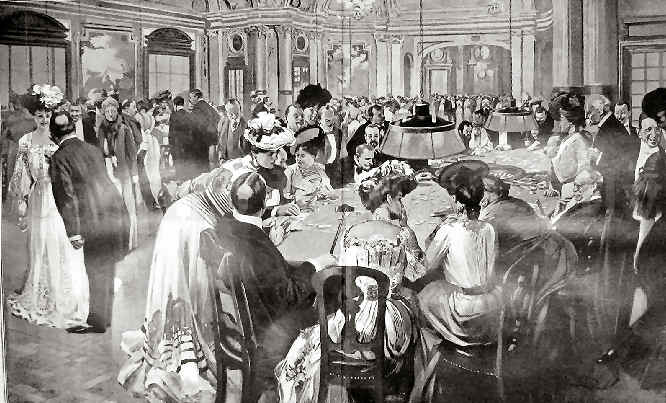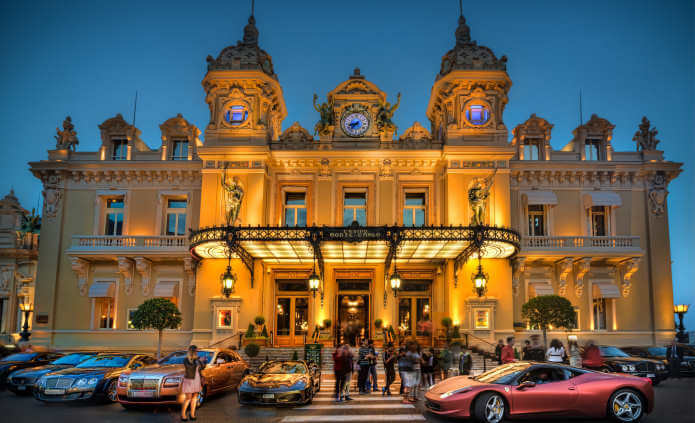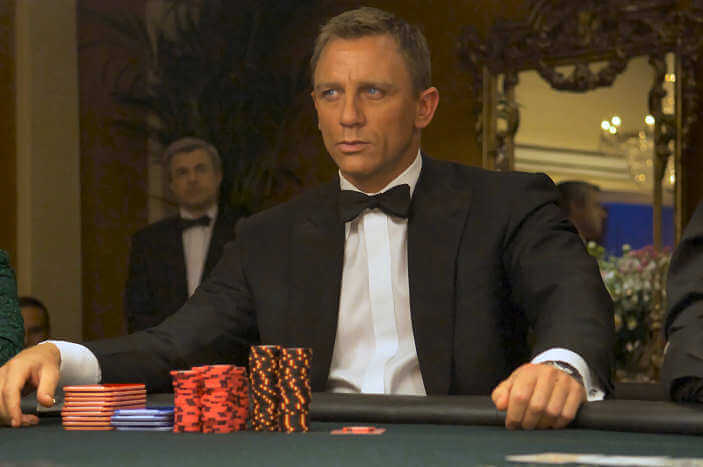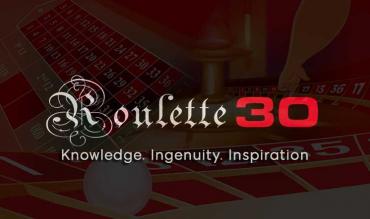Roulette is one of the most loved and iconic casino games on the planet. I’m sure you think you know all there is to know about it by know, but do you know the back story? The Roulette has a rich and colorful past that involves, among others, 17th century science, the British secret service and the devil. Here are 10 interesting facts and anecdotes from the rich tapestry that makes up the detailed history of our favorite game.
1. The Invention of the Wheel
You can ask a dozen different so-called experts where roulette originated from, and you will get as many different answers. The truth is no one knows for sure and chances are we never will. Three games that are often mentioned as the forerunners to modern roulette: Biribi, Ace of Hearts and Hoca. Still, that none of these games involved a wheel or balls, and were simply card or lottery games that involved the 36 numbers used on the roulette wheel. The most likely candidate is a game played in the late 17th and early 18th century in England called Roly Poly. This later evolved into EO or Even/Odd which was played on a roulette-style wheel, but instead of numbers there were simply 20 sections marked odd, and 20 marked even, with a third section marked for the house. I’m sure you can imagine how exactly it was played.

2. Perpetual Motion Machines
Another theory is that the game was invented in France at about the same time. The name roulette is French for “little wheel” which gives credence to this school of thought. I for one, am quite happy we play roulette today and not Roly Poly or EO!
Even in the French version of events, it’s still uncertain who actually came up with the game. Some believe it was a French monk, whose name never made it into the annals of history. The story goes that this monk invented the game to alleviate the daily boredom of life in the monastery.
One of the most fascinating versions, though is that it was invented by important French mathematician and scientist Blaise Pascal, who lived in the 17th century. It was far from setting out to make a gambling machine however, he was trying to create a perpetual motion machine – a machine that never stops moving, which would have hundreds of important uses. He obviously failed, but his loss was the world’s gain.
The probable truth is that the contemporary game is a combination of the betting systems of Even/Odd with the mechanics of wheels used in France and those on the other side of the English Channel.
3. A Deal with the Devil
François Blanc along with his brother Louis helped make Monte Carlo into the gambling mecca it is today. Impressed and obviously envious peers at the time used to say that in order to learn the secrets of roulette, Blanc had sold his soul to the devil. It is for that reason – so the story goes – that the numbers on a roulette wheel add up to 666. It is also why it is sometimes referred to as “the devil’s game”. In reality, it was Blanc who added the zero to the roulette wheel. But of course, the numbers add up to 666 with the zero or without it.
4. One Zero or Two?
The rules we play by today, including straight up, corner, split and street roulette bets, are the same as those in effect in the first casinos of France, Germany and Monte Carlo. That also goes for American roulette wheel rules. However, there’s one significant difference: They have two “0” or house pockets. European tables only have the one “0”. This was introduced by François Blanc to attract more punters to his Hamburg casino. It isn’t known whether this was on the advice of Beelzebub or not.
The extra “0” makes a big difference. If you play on a European table, the house has an advantage of 2.7%. This goes up to 5.26% when playing on an American wheel.

That isn’t all. French-style roulette tables let you reduce the house edge even further with the addition of En Prison and La Partage rules. The former means that if the ball lands on the zero, you can leave your stake on for an extra spin. La Partage gives players half of their original stake back.
These two variations have the effect of lowering the house advantage even further to 1.35%. So not only does Europe have some of the best casinos on the planet, the tables are a lot kinder to your pocket too.
5. The US-born Eagle Slot
Early American casinos didn’t seem to be as generous as their European cousins. Instead of figuring out ways to lower their advantage, they went the other way. The “Eagle Slot” was an example of this. This was in effect a third “0” but was actually larger than the regular squares. As you can imagine, these were incredibly unpopular and were eventually phased out. If you can get your hands on an old table that does still have an “eagle slot”, or indeed a table that only went up to 28 not 36, consider yourself much luckier than gamblers who played this variation: as collectables, they are now worth a fortune.
6. All or Nothing
Games like roulette always attract some incredible people with equally incredible stories. One such individual was Ashley Revell. An Englishman born in 1972, Revell decided to sell all his earthly possessions, even changing his name to that of a local bookmaker who donated some funds, and risk it all on one spin of the roulette wheel.
Revell went to the Plaza Hotel and Casino in Las Vegas, where he put the $135,300 he had amassed on red. It came in, doubling his money. He wasn’t as lucky in business however, the online poker company he set up as a result went bust in 2012.
7. “Impossible” Runs
Our perception of random numbers is not always mathematically correct. Crazy runs of numbers happen more often than you would think, as well as colors going for and against you for what seem like impossibly long runs. According to reports, one of the wheels at the Rio Casino of Las Vegas reportedly hit the 19 seven times in a row, while another in a Bristol Casino in the West of England came out on red 36 times in a row.
8. Roulette in the Movies
It isn’t a surprise that roulette features in so many movies. James Bond, frequenter of many a casino in his time more often than not plays the number 17. This is one of the reasons (along with its central position in the wheel) that 17 is bet more than any other number by all punters. There aren’t many ways we can be like 007, so that is as good a way as any I suppose.

One gambler who would certainly agree is Mike Ashley. Owner of Newcastle United in the English Premier League and founder of Sports Direct, Ashely won £1.3 million after placing a series of bets totaling £480,000, all involving the number 17.
Another roulette slot number to feature heavily in movies is 22. It is central to the plot in 1993’s Indecent Proposal, as well as being prominent in Casablanca (1942) and Lost in America (1985).
9. A Worldwide Phenomenon
Today you will find a roulette table in practically every country in the world. There are estimated to be about 70,000 tables in operation and of course many more are online. The casino with the largest working number is the Venetian in Macau which has more than 120. The casino in Monaco actually has more than that, but it only has 22 of them in operation at any one time. So, apologies Monte Carlo but Macau wins.
10. Impressive records
The biggest bet in roulette history was made at the Horseshoe Binion casino in Vegas. One lucky – and I imagine rich – player staked a cool $1 million on red and yes, he won.
The holder of the longest time spent at a wheel non-stop is an elderly US lady. She managed to go an incredible 6 days solid without a break in a Vegas casino. It isn’t documented whether she eventually gave up or not. Finally, the time longest roulette table round was an impressive 2 minutes and 8 seconds recorded in Atlantic City.
Despite its murky beginnings, roulette has certainly influenced popular culture and played a role in many people’s lives in the past couple of centuries. One thing is for sure, there will be many more stories written and records made and broken over the next two hundred years.


